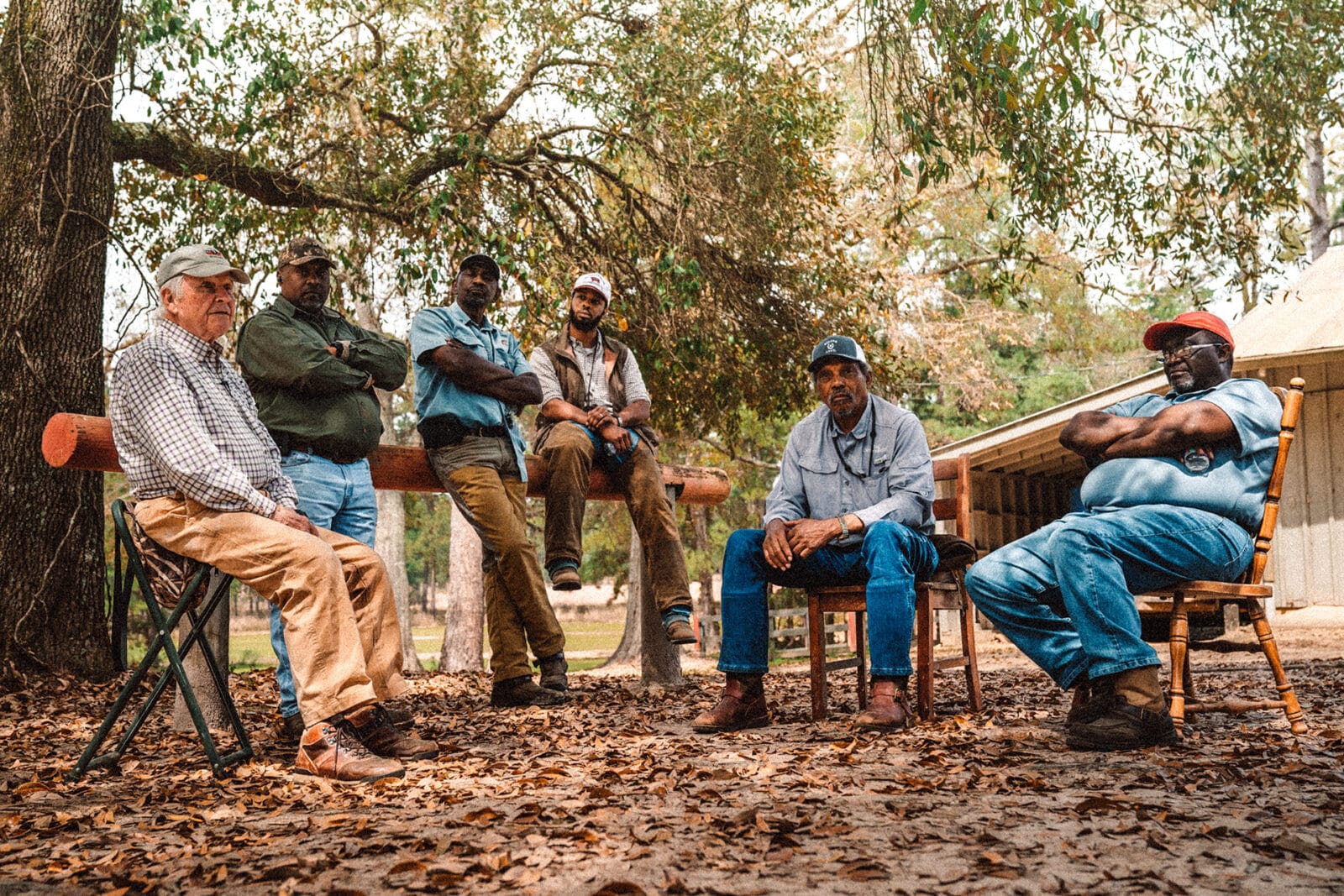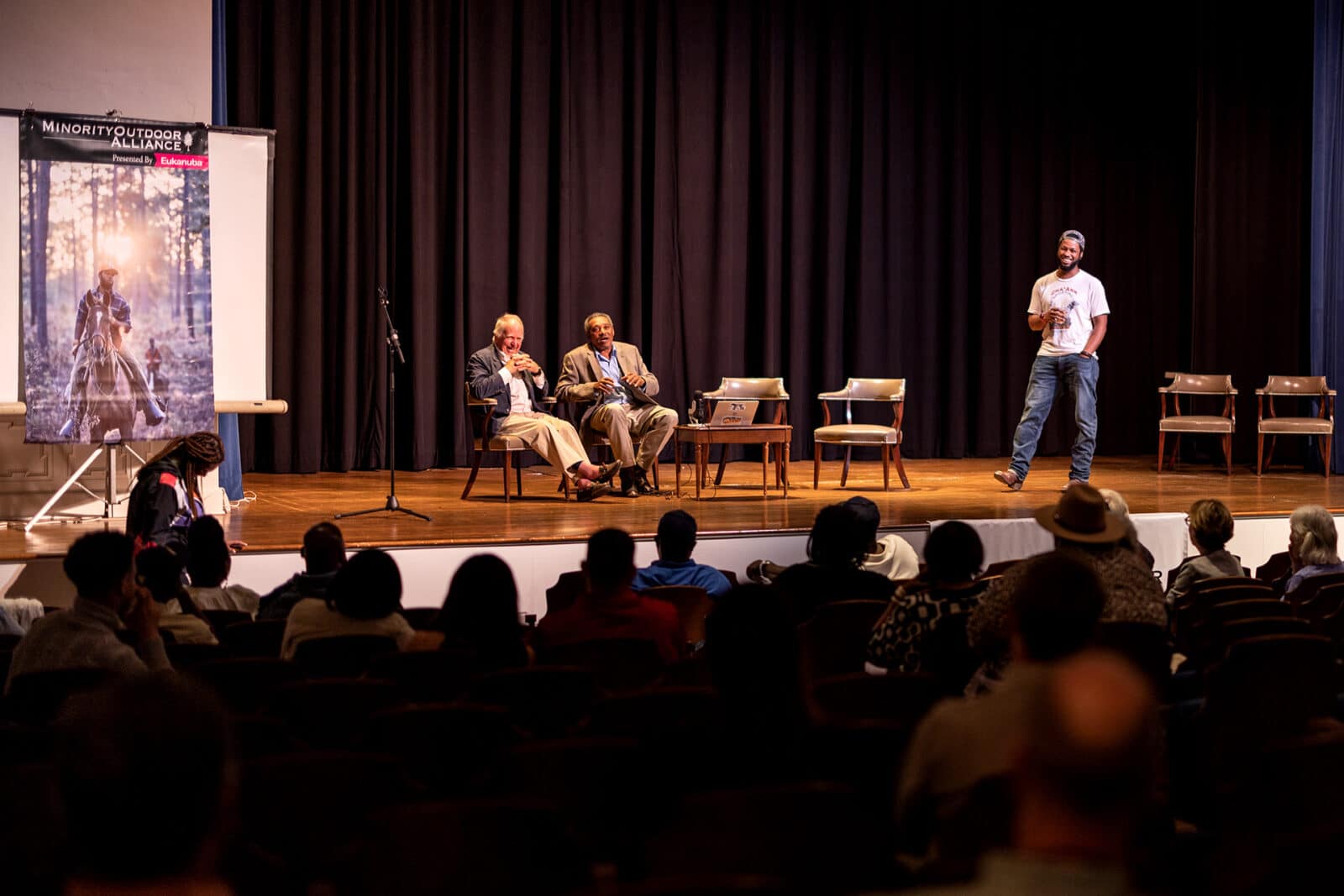When we released Dogmen in February of 2022, we were confident that the film would be received as it was intended—an exploration of a rich, untold story in the American hunting culture. However, we could never have anticipated the outpouring of support and personal stories that have been shared with us. From fellow dog handlers and bird hunters to folks who grew up surrounded by this way of life in the heart of Georgia’s Red Hills, Dogmen spoke to a far broader community than one might expect.

To celebrate the dog handlers featured in the film, onX hosted a live screening of Dogmen at the Thomasville Center for the Arts in Thomasville, Georgia, a historic town in the heart of the Red Hills. Following a screening, Durrell Smith, the narrator of Dogmen, led an audience Q&A with handlers and others in the community.
Family Roots in the Red Hills
Many stars of Dogmen have been in the game a long time, but what we learned from the Q&A following the film premiere in Thomasville is why some of them got involved in the first place. Peppered with questions from family and close friends, we learned that many dogmen entered the sport because the path helped them find a place on the straight and narrow. Mothers encouraged their sons to work with dogs—and work with the men who worked with dogs—because it was honest work that provided a future. As we heard from Neal Carter Jr.’s sister, their mother got him a job working dogs as a teenager just to “set him straight.”

After these boys became young men and young men became mentors, the path for African American dogmen was further paved by the founding of the Black Dog Handlers Association, or simply the Black Handlers Club, in Thomasville around 1979. Through this organization, African American handlers owned, trained, and ran dogs in their own field trials—trials that became the envy of their white counterparts and nearby plantation owners.
Charlie Chapin, owner of Elsoma Plantation, put it best to the live audience following the showing. “The folks at the Black Handlers’ field trials had a lot more fun.”
“Do You Want to Be a Dogman?”
For Durrell Smith, the film has produced a swell of interest in everything from the history of black doghandlers in the South to upland hunting and dog training more generally. Turns out, Dogmen even spawned a new phrase that we’ve seen gaining traction throughout the bird hunting world.
“Dogmen has been impactful on my life and practice as a dogman because it is the definitive unveiling of a culture that has existed on the fringe of an already niche community in the Red Hills region of Georgia. This film highlighted the allure that I felt riding through the longleaf pines, watching my bird dogs press forward in the pursuit while embracing the pull of the Spanish moss as it hangs, quietly suspended in a palace already frozen and maybe even a bit lost in time.
“Thomasville itself has become a second home for me, and the men of these plantations have become my extended family. And that’s what the film is about—the men, the horses, and the bird dogs, a triumvirate holding court as marshals within the pines. But we are never the judges, the birds are. The dogs are conduits of a longstanding brotherhood, unbroken by the trials and tribulations of Georgia’s fraught history. Dogmen is a testament to the resilience and fortitude of African Americans who stayed in the South and prevailed in spite of adversity and doubt. We are here, and we always have been.
“So, yes. Hell yes, I want to be a dogman.”